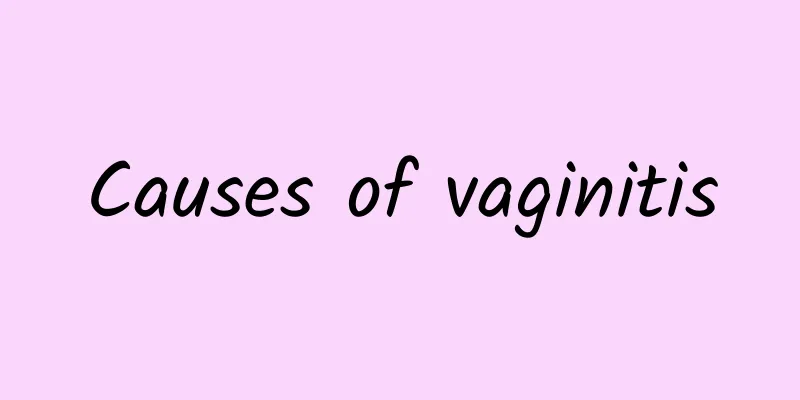Is bleeding from uterine fibroids dangerous?

|
Bleeding from uterine fibroids can indeed cause harm to your health, mainly manifested as anemia, pain, and a possible increased risk of infection. Bleeding is one of the common symptoms of uterine fibroids. The specific cause is a combination of factors such as changes in hormone levels, the location of the fibroids, and their effects on the endometrium. Hormone imbalances, especially high estrogen levels, usually aggravate the bleeding symptoms of uterine fibroids. Fibroids located below the endometrium often lead to more severe menorrhagia and increase the risk of anemia. Deformation of the uterine cavity caused by fibroid growth can also aggravate dysmenorrhea and bleeding, especially during menstruation. There are many ways to treat bleeding from uterine fibroids, including medication and surgery. In terms of medication, oral contraceptives, androgen drugs such as mifepristone, and GnRH agonists can help regulate hormone levels and reduce bleeding. In surgical treatment, uterine artery embolization can effectively reduce the blood supply to the fibroids and reduce the amount of bleeding. Minimally invasive surgery such as laparoscopic myomectomy can also remove fibroids while preserving the uterus and help control bleeding symptoms. For women who do not want to have children and whose lives are severely affected by fibroids, hysterectomy may be the last option. There are many ways to treat bleeding from uterine fibroids, including medication and surgery. In terms of medication, oral contraceptives, androgen drugs such as mifepristone, and GnRH agonists can help regulate hormone levels and reduce bleeding. In surgical treatment, uterine artery embolization can effectively reduce the blood supply to the fibroids and reduce the amount of bleeding. Minimally invasive surgery such as laparoscopic myomectomy can also remove fibroids while preserving the uterus and help control bleeding symptoms. For women who do not want to have children and whose lives are severely affected by fibroids, hysterectomy may be the last option. If you experience bleeding symptoms from uterine fibroids, you should seek medical attention promptly to obtain a professional evaluation and determine an appropriate treatment plan. Regular monitoring of hemoglobin and iron levels is also important to prevent anemia caused by bleeding. In terms of lifestyle, maintaining a healthy diet and moderate exercise can help improve immunity and alleviate symptoms. Try to avoid high-fat and high-sugar diets to reduce estrogen levels in the body. Reasonable stress management and adequate sleep can also relieve fibroid symptoms to a certain extent. Paying attention to changes in your own body and undergoing regular gynecological examinations can help detect and treat uterine fibroids and their related symptoms early. |
<<: Can you get pregnant if your endometrium is thick?
>>: Can Wuji Baifeng Pills treat pelvic inflammatory disease?
Recommend
Daily care for patients with vulvar leukoplakia
Vulvar leukoplakia is a common gynecological dise...
Is pumpkin and spinach a must-eat to fight against lung cancer, the "king of female cancer"? Nutritionist: Eating the right vitamin A and tomatoes and lycopene can nourish your lungs and save your life
Women who don’t smoke or cook can still get lung ...
Daily care for patients with Bartholinitis
Experts say that among the pathogens of Bartholin...
Check out some common early symptoms of acute pelvic inflammatory disease
What are the early symptoms of acute pelvic infla...
How long will it take for menstruation to come after a miscarriage? It will take about a month for menstruation to come
Menstruation can be said to be an issue that wome...
Ovarian cysts: can fallopian tubes be removed? How to treat them surgically?
With the development of medical technology, the m...
How to differentiate metrorrhagia (dysfunctional uterine bleeding) from other diseases?
Xiaoqin's menstruation has been a little irre...
Does curettage hurt? How many minutes does it take? Find out more
During curettage, instruments are needed to extra...
Will having Bartholinitis in a 6-month pregnancy affect fertility?
Bartholinitis is an inflammation caused by infect...
I love eating white rice as my staple food, which makes me a sweet lover! Eating white rice in the morning may affect your health
While enjoying delicious food, you should also st...
Uterine fibroids can cause infertility
Uterine fibroids are the most common benign tumor...
Does brunch make you fatter? Bad habits that must be given up
By Chen Yongyi From the perspective of healthy ea...
How to delay menstruation? What are the methods to delay menstruation?
As we all know, women have their own menstrual pe...
What are the dangers of thick endometrium?
Thick endometrium may have many effects on women&...
Analysis of the symptoms of malignant ovarian cysts
Among gynecological diseases, ovarian cysts are p...









